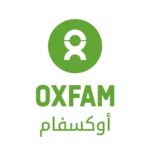Campaign Support on Narratives and Political Capture in the MENA
Background
Countries in the Middle East and North Africa (MENA) region have grappled with mounting debt and enduring austerity measures, leaving vulnerable populations burdened by the financial fallout and millions without access to essential services or social protection. This harsh reality has given rise to poverty alleviation programs rather than comprehensive social protection. The prevailing neoliberal model, championed by institutions like the IMF, emphasizes austerity and private sector growth, often exacerbating existing inequalities. Dominant narratives that endorse this model contribute to wealth concentration and heightened inequality, with a few individuals amassing significant fortunes while the majority languishes in economic hardship. These narratives, influenced by ideological frameworks, shape public discourse and policy decisions, perpetuating the status quo.
However, there is a growing recognition of the need to challenge and transform these dominant narratives. With the right tools, change movements can introduce new narratives into public discourse, reshaping collective perceptions and values. To initiate this shift, it is crucial to deconstruct the prevailing narrative, understand its political implications, analyze the media channels that propagate it, and debunk its supporting arguments. The subsequent steps involve constructing a counter-narrative that offers a new discourse and frame of thought, challenging existing truth regimes, and expanding the realm of possibilities for change. Additionally, it entails fostering an environment conducive to structural and transformative change, driven by grassroots efforts and international collaboration.
Outcomes
- Narrative Deconstruction: Triangle’s efforts have focused on dismantling the dominant narrative by exposing its political ramifications, the interest networks it benefits, the media channels that propagate it, and the fallacious arguments it relies on.
- Counter-Narrative Building: Beyond deconstruction, Triangle has worked on constructing a robust counter-narrative. This includes developing new frames, clear messaging, and a compelling vocabulary that resonates with the public. It aims to harmonize the discourse among activists, organizations, and movements while identifying key target audiences and influential voices.
- Challenging Truth Regimes: Triangle endeavors to challenge existing truth regimes by establishing emotional connections between macroeconomic issues and individuals’ daily experiences. This involves forming alliances with alternative media and journalists, reducing the fear of change, and fostering a belief in the possibility of transformation.
- Statistical Advocacy: Triangle has advocated for the adoption of multi-dimensional, intersectional inequality indicators and statistical methodologies, creating a common position for addressing inequality-related issues.
- Creating an Enabling Environment: Triangle’s approach extends to fostering an environment conducive to structural change. This entails developing grassroots efforts that embody the values of a fair socio-economic model and building narratives that transcend borders through regional and international networks, coalitions, and campaigns. These efforts seek not only to mobilize global public opinion but also to unite individuals from the global South and North around common narratives of change in the context of debt and austerity in low- and middle-income countries.
Project:
Campaign Support on Narratives and Political Capture in the MENA

Duration:
March 2022
Lebanon
